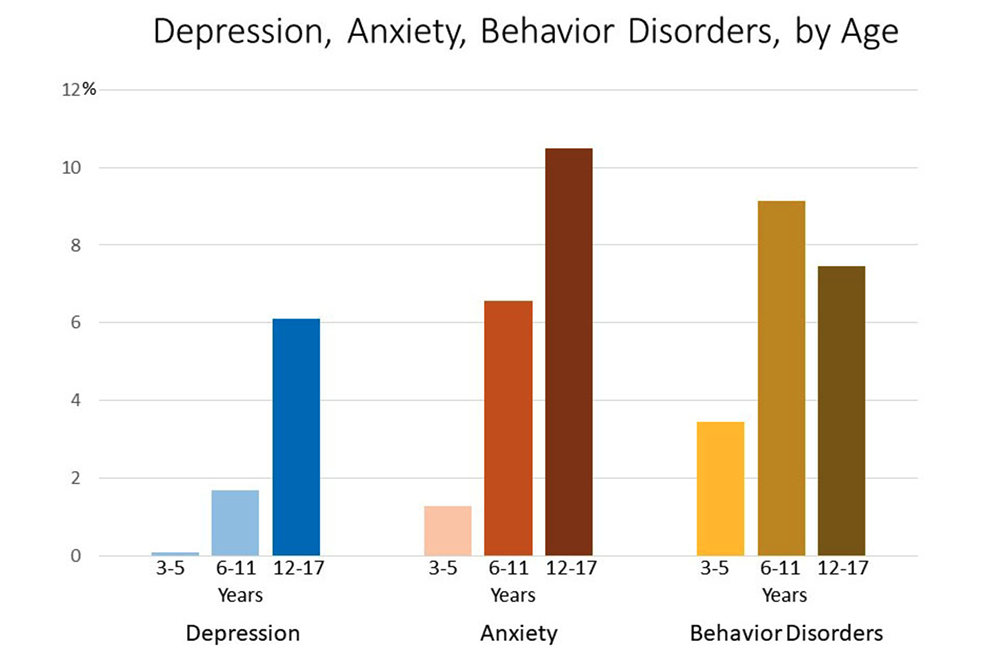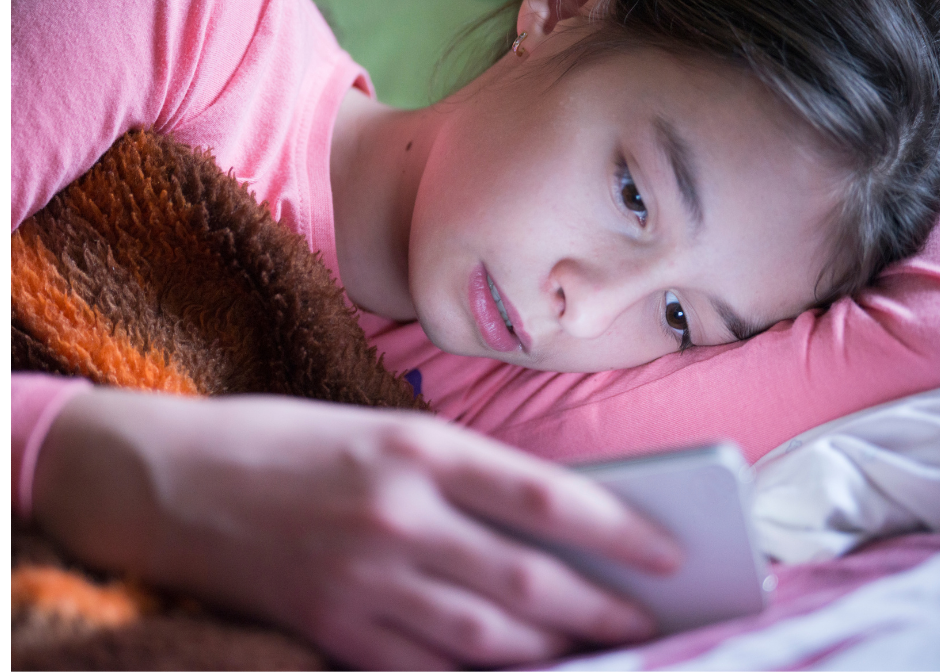I often hear from parents who say they have witnessed the personality of their teen girls change completely in a matter of months. They report that their once joyful, friendly, outgoing and active child now locks herself away in her room, barely speaks to her family and appears to be either consumed by anger, unhappiness or anxiety.
We know, the transition from childhood to adolescence isn’t easy for anyone. Going through puberty and the turmoil of the middle and high school years can have a major impact on mental health and wellness. Data from the Centers for Disease Control show that the rates of anxiety and depression spike between the ages of 12 and 17 across the board. Millions of teenagers in the United States are in pain and this pandemic year has made things even more difficult for many.

Research shows that gender is a differentiator. There is no doubt that suicide rates have long been much higher for teen boys than girls. However, some recent studies conclude that girls are actually more susceptible than boys to the social and emotional upheaval during the teen years. Before puberty, for example, the rate of boys and girls diagnosed with a mood disorder is about the same (3 to 5 percent.) By mid-adolescence, girls are more than twice as likely to struggle with anxiety or depression as boys (14 to 20 percent), according to an article by Ron J. Steingard, MD, for The Child Mind Institute.
Why are teen boys and teen girls different?
One theory is that that boys and girls process emotional stimuli differently: “Girls mature, in terms of their emotional recognition, faster than boys—and that sensitivity could make them more vulnerable to depression and anxiety,” Steingard wrote.
We see that popularity and positive social interactions tend to have a more pronounced effect on teen girls’ happiness than boys’ happiness. Girls also face more pressure about their appearance than boys. So, it’s hardly surprising that their self-esteem suffers as their bodies and brains change. A study out of the U.K. by the Education Policy Institute and the Prince’s Trust surveyed 5,000 young people between the ages of 11 and 17 and found that at age 11 one in seven girls reported being unhappy with their appearance. By the age of 14, it’s one in three. Meanwhile, Boys’ confidence levels did not change markedly during those years. Girls also are more likely than boys to struggle with eating disorders and self-injury or cutting.
Poverty, family circumstances, falling behind in school and other factors can negatively impact a young person’s mental health. The British study argues that girls, in particular, have been affected by their use of social media in recent years. Between 2010 and 2017, when smartphones became ubiquitous, the rate of teen girls diagnosed with major depression jumped from 11 percent to 20 percent in the U.K., the number of girls ages 10 to 14 who were admitted to the emergency room after deliberately harming themselves increased three-fold, and the number of adolescent girls who took their life through suicide nearly doubled.
The study determined that boys and girls use digital technology differently. Boys typically spend most of their screen time gaming, while girls are usually on their smartphones texting or on social media. Their social hierarchy and friendships are influenced by likes, emoji’s and comments and their perceptions of beauty and what is acceptable are informed by images posted by celebrities. Social media is fertile ground for anonymous cyberbullying. Many girls never turn off their devices and are constantly exposed to the chatter. Certainly, mental health and wellbeing begin to suffer when the use of devices interferes with actual, face-to-face relationships or disrupts sleep and school time.
A teenage girl’s world is complicated, full of changes and challenges and it’s normal for them to ups and downs. However, if you notice your teenager withdrawing or significantly changing their behaviors, level of activity, sleep patterns, mood or performance in school, it may be time to seek out professional help. Early intervention is key to preventing more severe, lasting mental health problems in adulthood. Contact your physician about having your child evaluated by a mental health provider or find contact me for a consultation.

